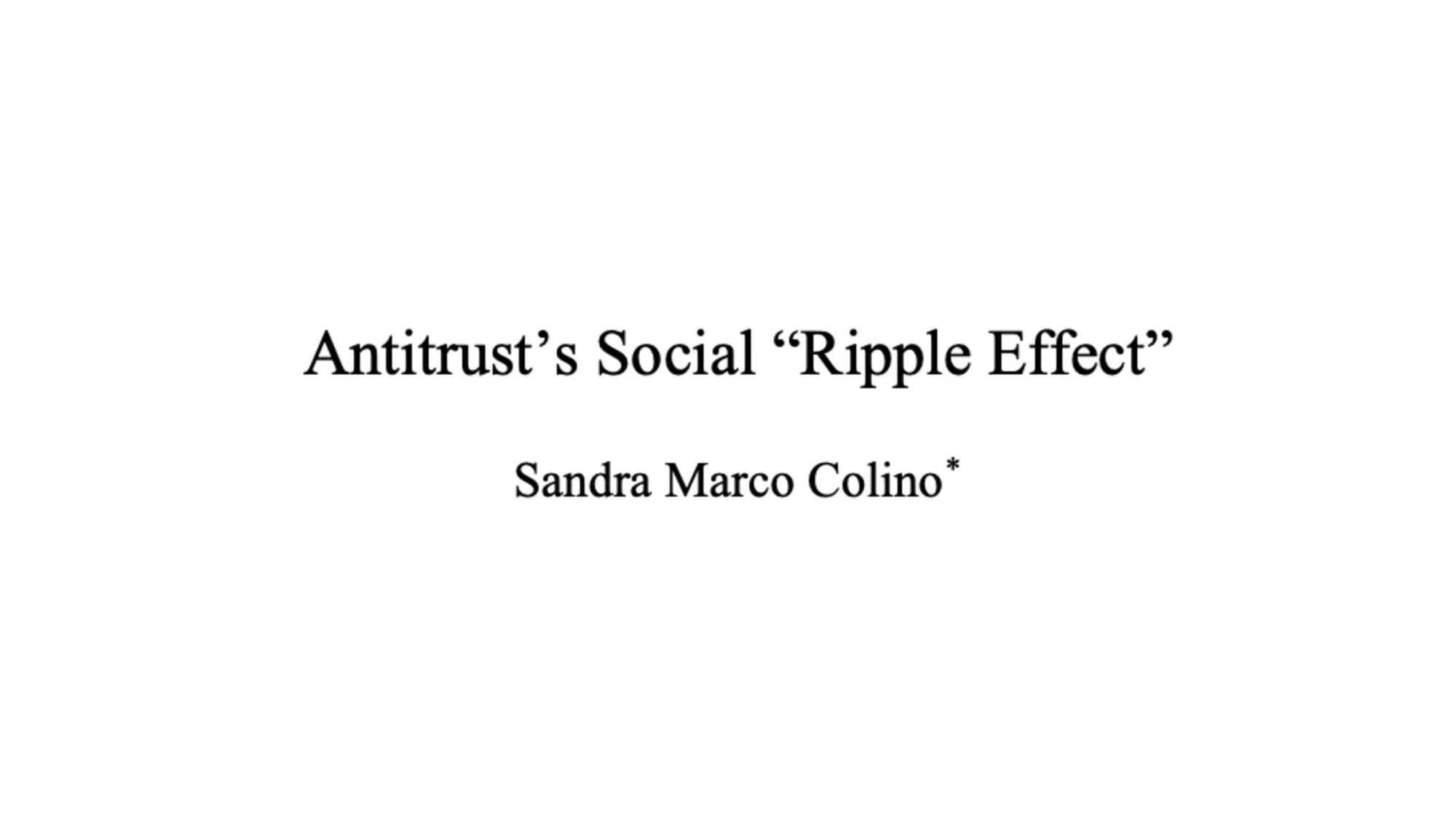Antitrust laws' hidden benefits for society beyond just market efficiency
How competition enforcement secretly advances environmental and equality goals without most people realizing it.

Competition law is experiencing a significant shift in thinking about its broader societal benefits according to research published this month. The study reveals how effective antitrust enforcement can promote environmental protection and reduce wealth inequality without compromising its core economic mission.
Get the PPC Land newsletter ✉️ for more like this
The academic article "Antitrust's Social 'Ripple Effect'" by Sandra Marco Colino, published in the Berkeley Journal of International Law, explores how competition policy can embrace non-economic goals while maintaining its role as guardian of well-functioning markets. The research arrives amid intensifying global debates about the proper scope of antitrust enforcement, with important implications for businesses, consumers, and policymakers.
Marco Colino challenges conventional wisdom that environmental goals require less antitrust enforcement while inequality reduction requires more. Instead, she demonstrates how robust competition policy can simultaneously advance both objectives as positive side effects of protecting market function.
"The relentless discussion on the value of social goals in antitrust is currently governed by two pressing concerns: rising wealth inequality and the plight for sustainability," notes Marco Colino in the opening of her analysis.
The research finds that competition authorities on both sides of the Atlantic regularly pursue cases with significant environmental dimensions. For example, the European Commission imposed €875 million in fines on car manufacturers Daimler, BMW, and Volkswagen in 2021 for colluding to hamper innovation in diesel car emission standards. This demonstrates how antitrust enforcement can promote environmental progress by preventing companies from conspiring to limit clean technology.
According to Marco Colino's research, companies often justify anti-competitive behavior by claiming it serves sustainability goals. However, she finds little evidence that antitrust enforcement has actually blocked legitimate environmental initiatives. The study suggests such arguments frequently serve as smokescreens for collusion or other harmful business practices.
The article specifically examines a 2019 Department of Justice investigation into agreements between automakers and California regarding emissions standards. While critics cited this as evidence that antitrust laws block environmental progress, Marco Colino shows the investigation was abandoned without consequences, noting that the problem stemmed from political motivations rather than inherent flaws in antitrust doctrine.
The research also reveals how competition law can help address wealth inequality through direct and indirect effects. Marco Colino explains that effective antitrust enforcement prevents powerful companies from "extract[ing] greater wealth from the public than would be possible were they subject to stronger competitive forces." By maintaining competitive markets, antitrust law helps distribute economic benefits more broadly and prevents excessive concentration of market power that exacerbates inequality.
However, the article identifies troubling trends in enforcement, particularly in the United States. It criticizes several landmark cases, including a 2018 Supreme Court decision in Ohio v. American Express that allowed restrictions on merchants steering customers toward lower-fee payment methods. This ruling effectively created a regressive system where "those who have access to more expensive cards get (untaxed) rewards such as cash back or hotel/flying points, while lower-income households do not have access to these perks and will bear some of the costs merchants incur."
The situation is somewhat better in Europe, where the European Commission maintains more robust enforcement. For instance, while pay-for-delay agreements in the pharmaceutical industry (where patent holders pay potential generic competitors to delay market entry) are subject to lenient "rule of reason" analysis in the US, the EU considers them anticompetitive "by object" and more aggressively prosecutes them.
Marco Colino's analysis arrives at a critical moment as politicians, courts, and regulators reassess antitrust's proper scope. In the United States, the Biden administration appointed officials from the "Neo-Brandeis" movement, which advocates for more aggressive enforcement to combat concentrated economic power. Meanwhile, the European Union has introduced new guidelines allowing certain sustainability agreements between competitors.
"Instead of laxer enforcement, I contend that a robust strategy can provide adjuvant protection to social goals," Marco Colino concludes. Her research provides a framework for maximizing antitrust's social benefits without undermining its core economic mission.
The article proposes several practical approaches for enhancing antitrust's positive social impact, including prioritizing cases with environmental or equality implications, considering social harm as an aggravating factor when determining penalties, and developing more sophisticated theories of harm that capture broader externalities.
Despite this promising path forward, the research identifies significant obstacles, including judicial resistance, high evidentiary burdens, and lengthy proceedings that delay effective remedies. Marco Colino notes that in the United States, "the conservative tilt of the Supreme Court is bound to maintain a non-interventionist stance."
For marketing professionals, the research offers several important insights. First, it cautions against using sustainability justifications for potentially anticompetitive agreements, as authorities are increasingly skeptical of such claims. Second, it suggests growing attention to environmental and equality dimensions in competition investigations, which may influence enforcement priorities. Finally, it indicates that marketing strategies should anticipate more active antitrust scrutiny in sectors with significant environmental footprints or equality implications, such as energy, healthcare, and technology.
Timeline
- 2018: Supreme Court decision in Ohio v. American Express criticized as "possibly the worst antitrust decision in many decades"
- 2019: European Green Deal adopted, increasing focus on environmental aspects of competition policy
- 2021: European Commission fines car manufacturers €875 million for collusion on emission cleaning technology
- 2022: District court allows UnitedHealth's acquisition of Change Healthcare despite concerns about data access and innovation
- 2022: Austrian competition law amended to include a sustainability exemption
- 2023: European Commission adopts revised Horizontal Cooperation Guidelines with chapter on sustainability agreements
- 2023: Department of Justice files monopolization lawsuit against Google
- 2023-2024: Federal Trade Commission begins reviving enforcement of the Robinson-Patman Act
- 2024: Publication of "Antitrust's Social 'Ripple Effect'" in Berkeley Journal of International Law

